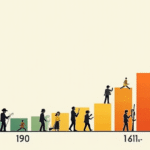Background on Key Figures and Relevant Context
During the 89th session of the United Nations Committee on the Elimination of Discrimination against Women (CEDAW), Mexico underwent examination for its progress and shortcomings in substantive equality and women’s rights. Yamila González Ferrer, the committee’s rapporteur, highlighted concerns regarding the lack of a clear constitutional definition of discrimination in line with CEDAW standards, as well as the absence of recognition for indirect and intersectional discrimination. These issues affect indigenous women, Afro-Mexican women, women with disabilities, migrant women, and LGBTI individuals.
Citlalli Hernández, the Secretary of Women’s Affairs, defended the judicial reform pushed by the current administration as a means to reduce impunity and ensure gender-sensitive justice. She emphasized that the gender perspective was elevated to constitutional rank.
Mexico’s Judicial Advancements
During the dialogue, Mexico’s government discussed judicial advancements, including the creation of a monitoring system for international recommendations and a mandatory course on gender perspective for the judicial branch. This training has already reached 59% of federal personnel.
Criticism and Concerns
Twenty-one Mexican civil organizations, part of the Alliance for Women’s and Girls’ Rights in All Their Diversity, alerted the CEDAW committee about significant and persistent human rights violations against women and girls in Mexico.
- Militarization in Civil Functions: The organizations pointed out the advancement of militarization in civil functions such as security, migration, and mega-projects, which has increased the exposure of indigenous women and migrant women to violence.
- Lack of Clear Discrimination Definition: Yamila González Ferrer, the committee’s rapporteur, emphasized the absence of a clear constitutional definition of discrimination according to CEDAW standards.
Key Questions and Answers
- Question: What is the significance of the 89th session of the CEDAW committee for Mexico?
- Question: Who are the key figures mentioned in the article, and what roles do they play?
- Question: What judicial advancements has Mexico made according to the article?
Answer: The 89th session of the CEDAW committee examined Mexico’s progress and shortcomings in substantive equality and women’s rights, highlighting concerns about the lack of a clear constitutional definition of discrimination and the absence of recognition for indirect and intersectional discrimination.
Answer: Yamila González Ferrer is the rapporteur of the CEDAW committee who raised concerns about discrimination definitions. Citlalli Hernández is the Secretary of Women’s Affairs who defended the judicial reform pushed by the current administration. The unnamed 21 civil organizations are part of the Alliance for Women’s and Girls’ Rights in All Their Diversity, which alerted the CEDAW committee about human rights violations against women and girls in Mexico.
Answer: Mexico has created a monitoring system for international recommendations and implemented a mandatory course on gender perspective for the judicial branch, which has reached 59% of federal personnel.






